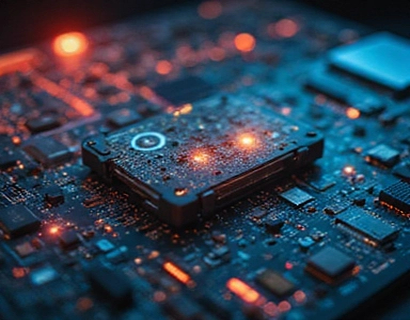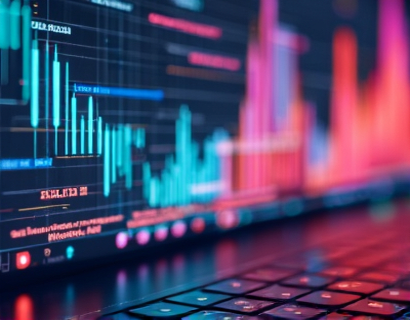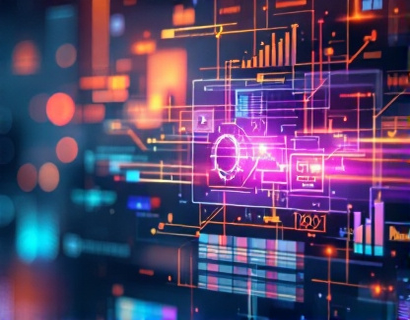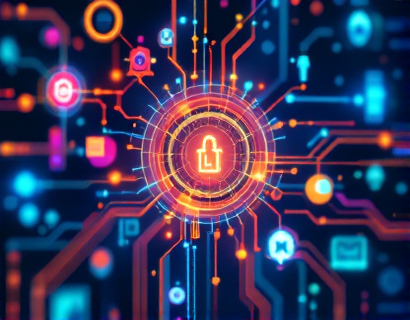AI and Crypto Synergy: Elevating Digital Finance with Intelligent Solutions for the Future
The intersection of artificial intelligence (AI) and cryptocurrency is redefining the landscape of digital finance. This synergy is not just a trend but a transformative force that is reshaping how we perceive, interact with, and utilize financial technologies. As we delve into this topic, it's essential to understand the foundational elements of both AI and cryptocurrency, and how their convergence is creating intelligent solutions that promise to revolutionize the FinTech industry.
Artificial intelligence, at its core, involves the simulation of human intelligence processes by machines, particularly computer systems. These processes include learning (the acquisition of information and rules for using it), reasoning (using rules to reach approximate or definite conclusions), and self-correction. In the context of digital finance, AI is leveraged to analyze vast amounts of data, identify patterns, make predictions, and automate complex tasks with unprecedented accuracy and speed.
Cryptocurrency, on the other hand, is a digital or virtual currency that uses cryptography for security. It operates on a decentralized network, typically a blockchain, which ensures transparency, immutability, and security of transactions. The most well-known cryptocurrency is Bitcoin, but there are thousands of others, each with unique features and use cases. Cryptocurrencies have disrupted traditional financial systems by offering a peer-to-peer transaction model that reduces the need for intermediaries like banks.
The synergy between AI and cryptocurrency emerges when these two technologies are combined to create intelligent financial systems. AI can enhance the functionality of cryptocurrencies by improving transaction processing, enhancing security, and providing sophisticated analytical tools. Conversely, the decentralized and transparent nature of blockchain technology can provide AI systems with robust, tamper-proof data sources, enhancing the reliability and efficiency of AI-driven financial solutions.
Enhancing Transaction Processing with AI
One of the most immediate benefits of integrating AI into cryptocurrency systems is the enhancement of transaction processing. Traditional financial systems often struggle with slow transaction times and high fees, especially in cross-border payments. AI can optimize these processes by predicting transaction volumes, identifying bottlenecks, and dynamically adjusting resources to ensure smooth and rapid transaction execution.
For instance, AI algorithms can analyze historical transaction data to forecast peak times and allocate computational resources accordingly. Machine learning models can also detect and prevent fraudulent activities in real-time, reducing the risk of financial losses. Smart contracts, self-executing contracts with the terms directly written into code, can be further enhanced by AI to automatically adjust conditions based on real-time data, ensuring more flexible and secure transactions.
Security Enhancements Through AI
Security is a paramount concern in the world of cryptocurrency. The decentralized nature of blockchain provides a high level of security, but it is not immune to threats such as hacking, phishing, and smart contract vulnerabilities. AI can significantly bolster the security of cryptocurrency systems by implementing advanced threat detection and response mechanisms.
AI-powered security systems can monitor network activity continuously, identifying unusual patterns that may indicate a security breach. These systems can learn from past attacks and adapt to new threats, providing a proactive defense strategy. Additionally, AI can enhance the security of private keys and wallet addresses through biometric authentication and behavioral analysis, ensuring that only authorized users can access sensitive information.
Another critical aspect of security is the verification process in blockchain networks. AI can optimize the proof-of-work or proof-of-stake mechanisms by predicting the most efficient consensus algorithms based on network conditions, thereby reducing the risk of attacks and ensuring the integrity of the blockchain.
Intelligent Investment Strategies with AI
The volatile nature of cryptocurrency markets presents both opportunities and challenges for investors. AI can provide valuable insights and predictive analytics to help investors make more informed decisions. By analyzing vast amounts of market data, including price trends, trading volumes, news sentiment, and social media activity, AI algorithms can identify patterns and trends that human analysts might miss.
Robo-advisors powered by AI can create personalized investment strategies based on an individual's risk tolerance, investment goals, and market conditions. These systems can automatically adjust portfolios in real-time, rebalancing assets to maximize returns and minimize risks. AI can also simulate various market scenarios to help investors understand potential outcomes and make strategic decisions.
Furthermore, AI can detect and mitigate market manipulation and insider trading by analyzing transaction patterns and identifying anomalies. This not only enhances the fairness of the market but also builds trust among investors, encouraging more participation in the cryptocurrency ecosystem.
Decentralized Finance (DeFi) and AI
Decentralized Finance (DeFi) is a rapidly growing sector within the cryptocurrency space, aiming to create financial systems that are open, transparent, and accessible to everyone. AI plays a crucial role in enhancing the functionality and user experience of DeFi platforms.
AI can optimize lending and borrowing protocols by dynamically adjusting interest rates based on supply and demand, ensuring efficient capital allocation. Smart contracts can be augmented with AI to automate complex financial operations, such as arbitrage and yield farming, with minimal human intervention. This not only increases efficiency but also reduces the risk of human error.
Risk management is another area where AI can significantly impact DeFi. By analyzing historical data and real-time market conditions, AI can assess the risk levels of various DeFi protocols and provide recommendations to users. This helps in making informed decisions and avoiding high-risk investments, thereby protecting user assets.
User Experience and Accessibility
The integration of AI in cryptocurrency and DeFi platforms also focuses on improving user experience and accessibility. Many users in the crypto space are tech-savvy, but the complexity of these systems can be daunting for newcomers. AI-driven interfaces can simplify interactions by providing intuitive, user-friendly experiences.
Chatbots and virtual assistants powered by AI can guide users through complex processes, answer queries, and provide personalized support. Natural language processing (NLP) enables these assistants to understand and respond to user requests in a conversational manner, making the platform more accessible to a broader audience.
Additionally, AI can facilitate the onboarding process by automating KYC (Know Your Customer) procedures and verifying identities through advanced biometric technologies. This not only streamlines the process but also ensures compliance with regulatory requirements.
Challenges and Considerations
While the synergy between AI and cryptocurrency offers numerous benefits, it also presents several challenges that need to be addressed. One of the primary concerns is the regulatory landscape. The decentralized nature of cryptocurrencies and the innovative use of AI can complicate compliance with existing financial regulations. It is crucial for developers and organizations to stay informed about regulatory changes and ensure that their solutions adhere to legal standards.
Another challenge is the ethical use of AI. The deployment of AI in financial systems raises questions about data privacy, algorithmic bias, and the potential for misuse. Ensuring transparency, fairness, and accountability in AI-driven financial solutions is essential to build trust and maintain the integrity of the ecosystem.
Technical challenges also exist, such as the need for robust infrastructure to support AI-driven systems. The computational resources required for training and running AI models can be substantial, and ensuring the scalability and reliability of these systems is critical for their widespread adoption.
Future Prospects
The future of AI and cryptocurrency synergy is promising, with several emerging trends and innovations on the horizon. One such trend is the development of AI-powered decentralized autonomous organizations (DAOs). DAOs combine the decentralized aspects of blockchain with AI-driven decision-making, enabling communities to govern and manage financial projects collectively.
Another exciting area is the integration of AI with other emerging technologies like the Internet of Things (IoT) and 5G networks. This convergence can lead to the creation of smart financial ecosystems where devices and systems interact seamlessly, providing real-time data and insights to enhance financial decision-making.
Furthermore, the advancement of quantum computing could revolutionize AI capabilities in finance. Quantum computers have the potential to solve complex problems much faster than classical computers, enabling more sophisticated AI models and faster data processing. This could lead to breakthroughs in areas such as cryptography, optimization, and predictive analytics.
In conclusion, the synergy between AI and cryptocurrency is poised to transform the landscape of digital finance. By enhancing transaction processing, bolstering security, providing intelligent investment strategies, and improving user experience, this fusion is creating intelligent solutions that are redefining financial interactions. As the technology continues to evolve, it is essential for tech enthusiasts, innovators, and financial professionals to stay informed and embrace these advancements to navigate the future of FinTech effectively.










































